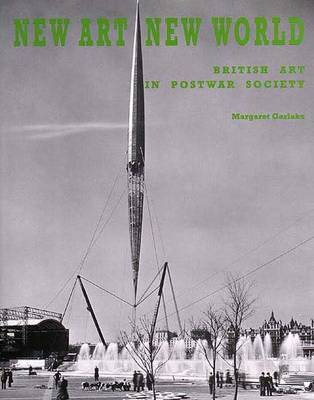During the years following World War II, Britain was plagued by privation, xenophobia, and humiliation from the loss of colonial territories and political power. At the same time, the country was in the midst of a dawning triumphalism, seen first in the Festival of Britain, then in the new Coventry Cathedral, and finally in the international status accorded to British art by the early 1960s. This book sets the visual arts in the social and political context of these complex years.Margaret Garlake establishes the intellectual, historical, and organizational frameworks within which art was made and received by critics and the public. She discusses problems raised by abstract art, links between art and politics (culminating in the Unknown Political Prisoner competition), and misapprehensions concerning art from the colonial territories. She describes such new institutions as the Arts and British Councils, the Institute of Contemporary Arts, and commercial galleries, all of which played crucial roles in sustaining artists and promoting their work. She examines the perception of a national tradition, grounded visually in landscape and place but heavily influenced by politics. And she investigates the negotiations undertaken by artists and critics sensitive to the nuances of tradition to respond to the impact of an international, American- oriented art. Finally, Garlake focuses on the broad themes within which many artists worked, including public art, landscape, the city, and the human body as mother, sex object, survivor, or worker.
- ISBN10 0300072929
- ISBN13 9780300072921
- Publish Date 11 July 1998
- Publish Status Out of Print
- Out of Print 22 September 2006
- Publish Country US
- Imprint Yale University Press
- Format Hardcover
- Pages 206
- Language English
